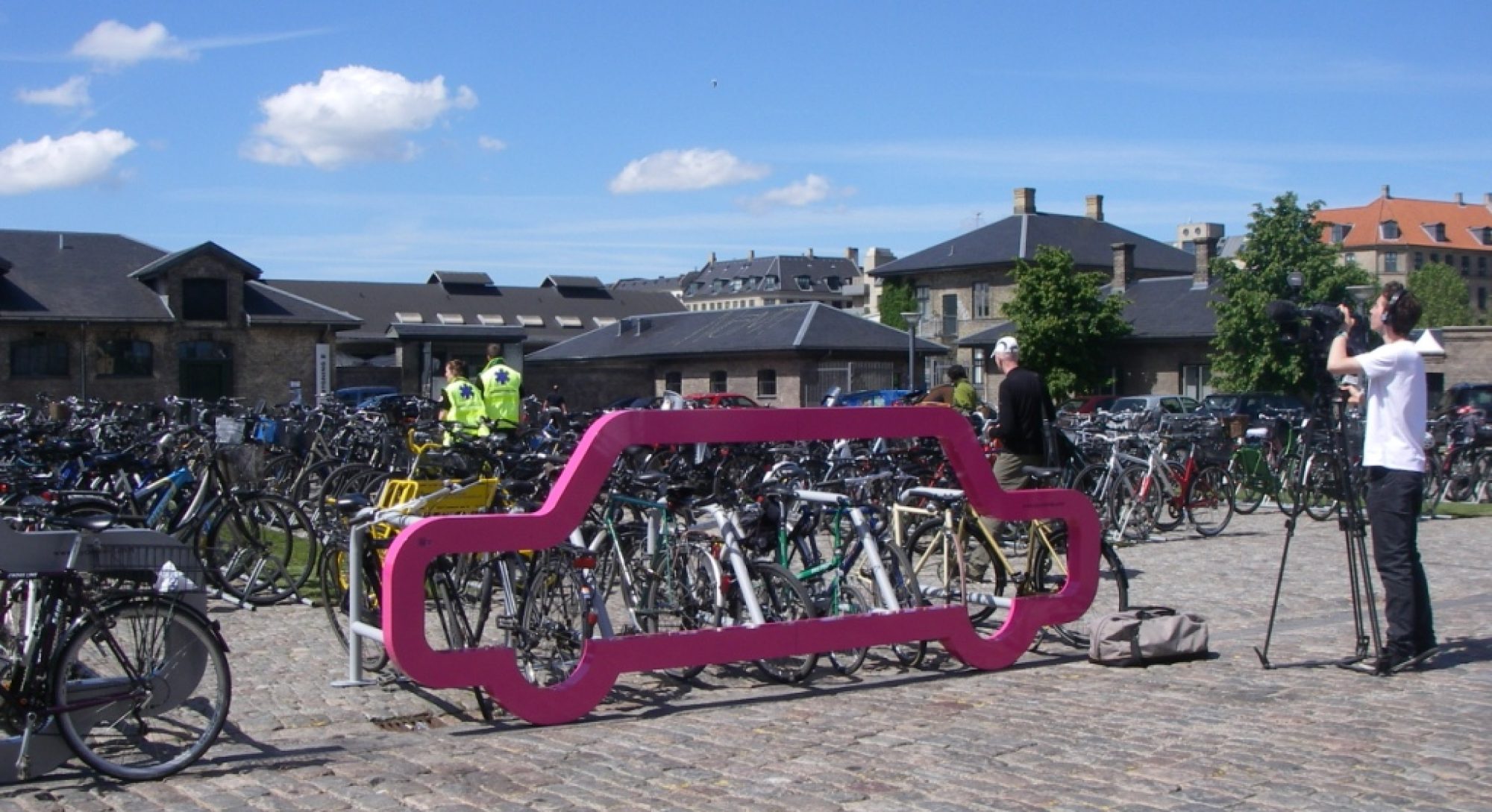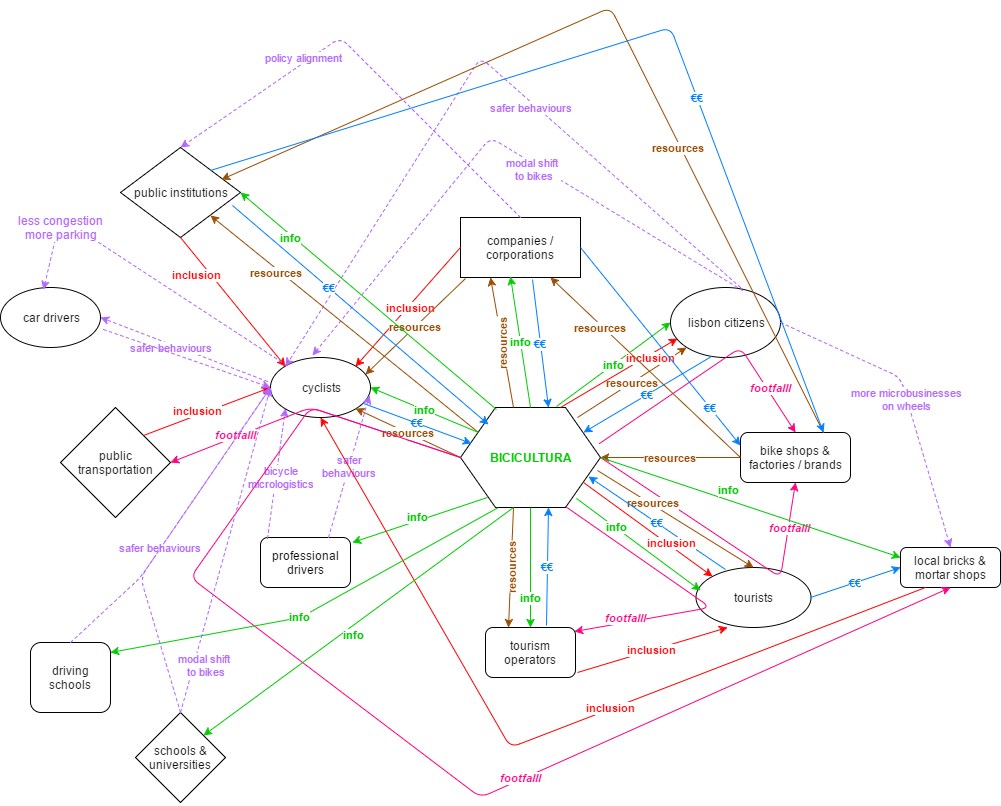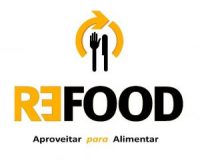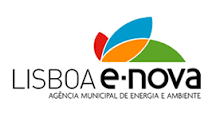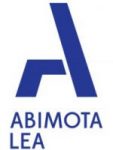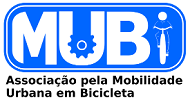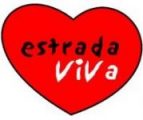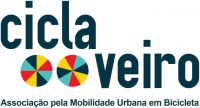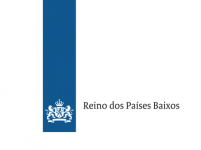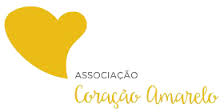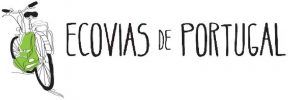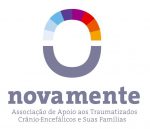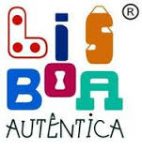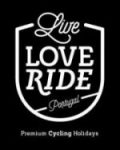A Casa da Bicicultura means “The House of Cycling Culture”, and it’s a cycling mobility education and promotion hub in the works.
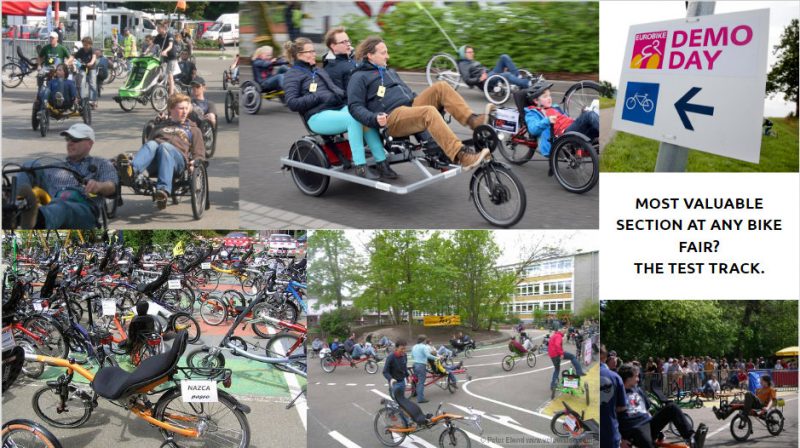
What are the goals?
- incubator & accelerator of a new culture of active mobility
- making cycling normal and increasing it
- greater inclusion & diversity in cycling for transportation, tourism and recreation
- modal shift cars -> bikes (and other active modes)
- greater road safety for cyclists and pedestrians
- supporting the local economy and creating jobs
- promoting qualified jobs in the field of cycling for transportation, in advocacy, urban planning and support services
- fostering greater local diversity in bicycle usage, to include micrologistic, mobile businesses, rehab and tourism
The long term vision is a better city to live, work and play in, greener, more prosperous and socially just.
Who are the stakeholders?
- Lisbon’s citizens
- tourists (local and foreign)
- bicycle users
- car drivers
- pedestrians
- local shops and companies
- cycling tourism operators
- corporations
- public transport operators
- public institutions
- logistics companies and professional drivers
- bicycle industry and retailers
- driving schools
- universities and schools
- children, parents, people with special needs (because of ilness, handicaps, ageing and other issues), families
What is the ecossystem like?
The Casa da Bicicultura project’s big innovation is the way it brings together different stakeholders, creating more value for all. The value constellation on the illustration below shows how different players exchange value (the exchanges can be monetary and non-monetary).
(click to enlarge)
General project description
The community is built in and around the House:
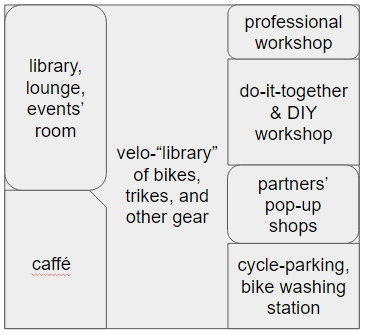
Casa da Bicicultura wants to revive the old local portuguese culture of utility cycling (we actually had one!). We want to transplant here the current mature cultures of cycling for transportation we know of in nordic countries and in other cities around the world, to accelerate the adoption of this lifestyle by the portuguese population, reducing the barriers they face in doing so. We want to make it easier and more accessible to switch the car for the bike for small daily trips, and to switch indoor leisure time for more active and outdoors alternatives, particularly on a bike.
Many of us have had the opportunity to visit or to live in other european cities where cycling for transportation is prevalent, we were amazed to see mother and fathers carrying 2 and 3 kids on theirs bikes on the school run, people carrying all kinds of objects in cargo bikes, people in their old age doing their daily errands and leisure trips on their bikes, children in groups cycling to school, and we too adhered to this means of transportation as naturally as the locals. But after returning to Lisbon we regret not beig able to keep doing it, not even for leisure, and we’re frustrated to be depriving our kids of these experiences. Because we can’t find these bikes in shops, because our homes have no place to store them, because we don’t really know that many people who also get around by bike, because we’re fearful of riding our bikes in these roads, etc.
The Casa da Bicicultura project is meant to serve the general population, but it’s an idea that was born thinking especially in the needs of families with kids, families and institutions taking care of people with special needs, seniors, and also of unemployed and underemplyed individuals looking to start micro-businesses in which a bicycle could be the basis or at least an important tool (street food, courier and last mile logistics services, arts & crafts, among others).
Casa da Bicicultura will have at the community’s disposal a diversified fleet of bicycles and tricycles, and also a library of components such as saddles and handlebars, accessories like child seats, trailers, baskets and bags, not to mention books. The acquisition / maintenance costs will be distributed by all the members, and this way they’ll have an easy access to all sorts of solutions, to use whenever they need, and only when they need it, at an affordable price and in a practical way.
Members will also have access to a complete workshop where they’ll be able to learn to do, and do, their own bikes’ maintenance, by themselves or with the help of other members, or to resort to professional mechanics whenever they need. Keeping the bike in good rolling conditions will be easy, affordable and an excuse to socialize.
The sharing of knowledge, skills and experiences, and the social aspect, is another of the essential vectores of the project. The Casa da Bicicultura will be essentially a cultural hub, with talks, workshops, urban cycling classes, summer camps for kids, second hand market fairs, rehab sessions for those who might benefit from them, movie nights, bike rides, cycling trips and tours, and other activities that can put people in touch, that improve their mobility experiences on the bike and that validate and reinforce their decision to choose cycling.
Side by side with this, we want to play an important outreach role, taking our training and awareness programs to where they can have an impact on the uptake of cycling and its safety: schools and universities, corporations, [car] driving schools, professional drivers, members of police forces, among others.
Map of the basic activities (click to enlarge):
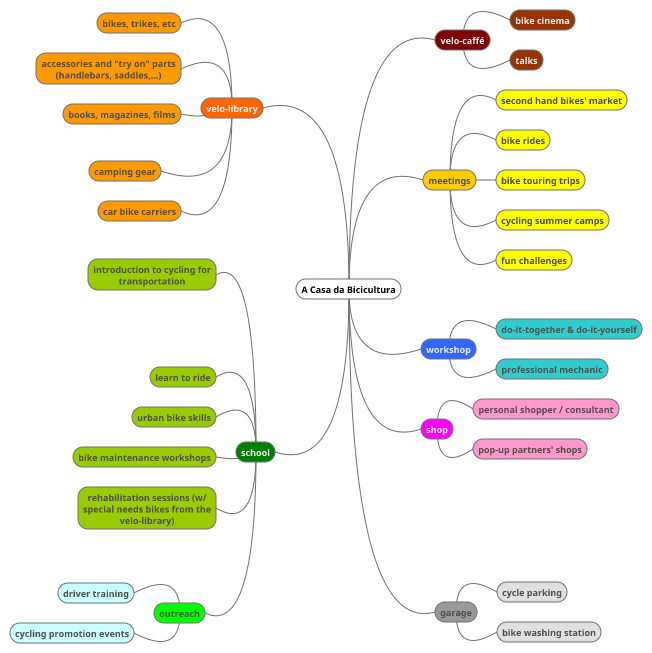
Casa da Bicicultura wants to function like an incubator for a newer and stronger culture of cycling in Portugal. One that will help us depend less on the automobile and to have a more active life, more connected to others. A new culture helping us create safer, greener, more prosperous, more inclusive, overall more attractive cities to live and work in throughout every phase of our life cycle.
Casa da Bicicultura wants to democratize the access to the bicycle and, through it, make the city more livable for all.
Which steps have been taken?
Early 2016 we created and distributed an online survey to gather opinions and assess people’s interest in the main services planned for Casa da Bicicultura, and we got 239 respondents. The results gave us confidence in the role this centre could play in the city and validated the idea locally.
We ran for FAZ – Ideias de Origem Portuguesa de 2016, and we had a good public vote rate.
In 2017 the founding team developed several Dragon Dreaming sessions to better design this project in a collective, shared way. We also developed and extensive research and study on the cooperative format, to evaluate if it would be the best option for the project.
In 2018 we initiated a fundraising effort to cover the expenses of creating the cooperative and the 600 € goal is almost reached.
Also in 2018 we found our first home at NOW_Beato! An excelent partner for this first incubation phase.
And we’ve been making bicycultural things happen, of course!
What’s happening now?
We’re preparing the formalization of the cooperative.
We’re getting settled in at NOW!
We’re preparing an event program for the next few months.
Our first supporters are:
A special spot for our host, of course:
How can you leave your print on this project and contribute to making it a reality?
Get in touch and we’ll find out together! info@bicicultura.org or just come to one of our events!
